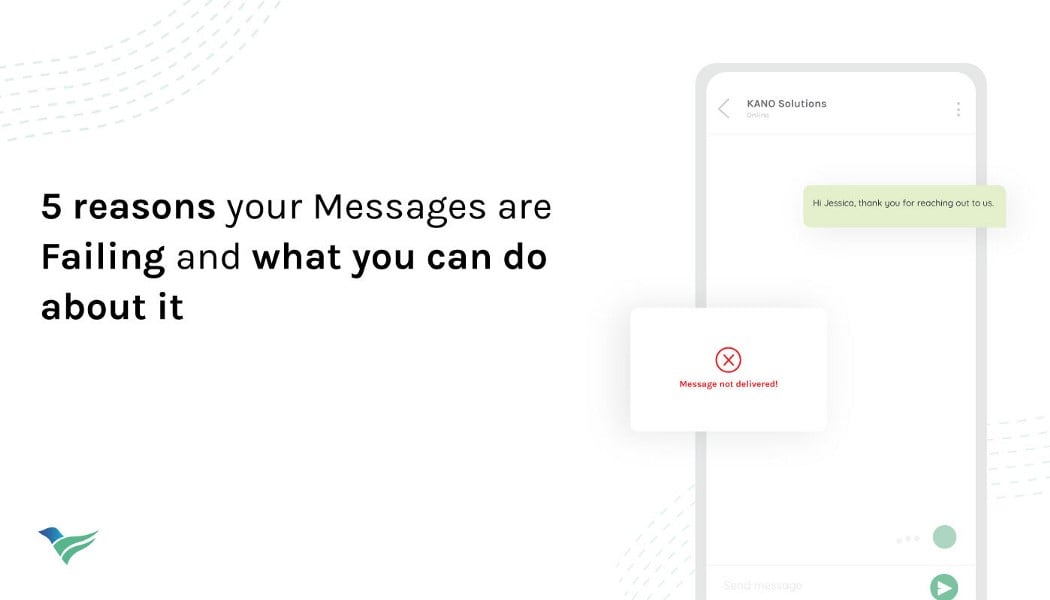5 Reasons Your Messages are Failing and How to Fix It

SMS is the most effective way for businesses to communicate with their customers. According to 99firms, the average open rate for text message campaigns is 98% compared to the 20% available email rate, while response rates are 295% higher than phone call response rates. How is it possible to benefit from this advantage if messages are not being delivered as desired? With every country and mobile operator having fluid regulations about what type of traffic is allowed or considered illegal, SMS communication can be tricky for big and small brands. In this article, we will highlight the possible reasons messages fail and touch on critical criteria to help make better decisions in reaching and engaging your audience.
Here are five core reasons why your messages are failing:
1. Carrier/Content Filters
Mobile operators use spam filters to block messages to prevent spammers and protect their subscribers.
Two reasons why messages are blocked and how to minimize the impact of these filters:
- Operators scan the traffic and search for keywords that might indicate that the traffic is illegal. Messages which are political, religious, or sexual in nature will more likely be filtered. To minimize the chances of messages being blocked, be sure to send solely valid and legal traffic and also avoid words that may be sensitive.
- Some operators also attempt to block recurring messages that enter their network. By doing so, they block all A2P, Application-to-Person messages (SMS messages sent from a web application to a subscriber like verification codes, user notifications, and marketing messages), leaving out only P2P, Person-to-Person messages (SMS messages enabled by mobile phone numbers.) To reduce the possibility of getting your traffic caught by this filter, try sending messages through A2P-enabled routes. Making random content for your messages can also minimize the chances of being caught in these routes.
2. The validity of the number
The most common reason for failed messages is when the number is not valid or does not exist. Other reasons a number is considered invalid include:
- No country code on the phone number.
- The phone number is ported to a new network or is invalid. “The reason for this is that these network providers and the NCC do not have an updated database for numbers. When you send messages, and the network tries to deliver them but finds no synergy between the network and the number, the message gets lost.”
- The phone number is a landline, and such phones do not support SMS. Messages to such numbers would certainly not get delivered.
3. Government Regulations
Governments in different countries have different rules concerning message delivery. For example, the Do-not-Disturb feature is implemented to block some specific messages or sender IDs from delivering.
4. Routing Factors
While most messages are sent through routes directly to the appropriate phone numbers, some messages may be sent to a particular network provider that does not allow the delivery of a message. If automatic rerouting services are not put in place, the delivery of such messages may fail entirely.
5. If the User is out of Reach
Mobile operators generally work with a store and forward model in which messages are kept and sent at a later time to the final destination (from 48 to 72 hours). If the number remains unavailable for this period, then the message will be discarded.
Despite all of these challenges, Termii has adapted to provide one of the most robust global services available on the market. Our advanced technology, Insights with detailed customer status analytics, and cross-channel delivery that automatically routes messages to alternative channels allow Termii to ensure timely delivery of all of your most important text messages.
To learn more about how you can leverage Termii’s SMS solutions to improve your message deliverability and measure your ROI, please click here.


